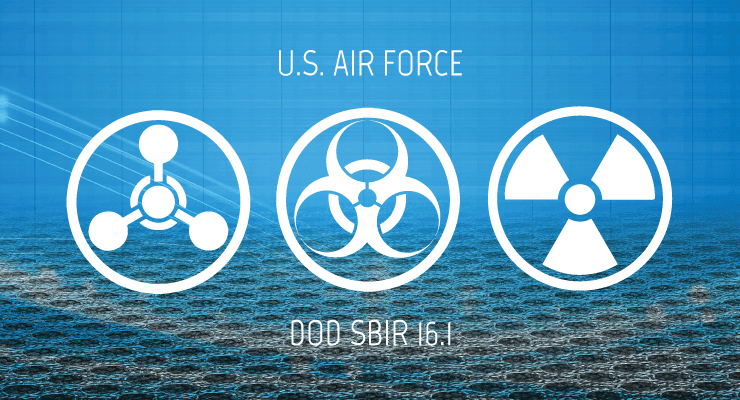The U.S. Air Force has released new topics for potential funding via the Department of Defense FY2016 Small Business Innovation Research (SBIR) program.
Focus areas related to Chemical, Biological, Radiological and Nuclear (CBRN) defense or biotechnology applications include:
Micro-Climate Automated Recorder
The Air Force seeks to develop a micro-meteorological device with sensors to detect biological, chemical and environmental parameters (humidity, O2, ammonia, CO2, temperature, wind direction/speed, etc.). The envisioned device could be deployed to many surface and subsurface locations or in burrows or other hard to reach locations; ruggedized to work in hostile conditions for a minimum of two weeks unattended; and operated as a swarm-like sensor or array with remote communication capability.
If successful, this device will provide environmental management data currently not available for both chemical biological defense and environmental monitoring and stewardship.
Microcosm Forecasting Utilizing Swarm Unmanned Aerial Vehicle Technology
Wind modeling in urban environments has been an ongoing and difficult challenge. The standard large-scale weather prediction models cannot properly resolve urban wind fields due to the models’ course resolutions and the nature of urban terrain.
This topic will explore using micro-UAVs capable of being deployed in a dense swarm within a high value target area. The UAVs need to be capable of carrying appropriate weather sensors and provide the gathered data to initialize Three Dimensional Wind Field (3DWF) high-resolution micro-scale urban wind models already under advanced development by the Air Force and Army Research Lab. Additionally, the UAVs need to be small enough to navigate complex environments while being sturdy enough to survive urban weather conditions.
This program would primarily be tied to Army operations. This effort is considered central to current development work on a 24/7 airborne hazard monitoring capability.
Cognition Biomarker Measurement in Sweat as an Index of Human Performance
Non-invasive, real-time devices to measure cognition biomarkers in sweat could enable local or remote monitoring of human operator function. These devices must include adequate sweat collection, biomarker sensing, and electronics to wirelessly transmit biomarker data.
The new sensor devices must minimize interference with the warfighter’s ability to perform the mission. For example, the sensors cannot require excessive apparatus or a lengthy calibration training period.
The Air Force will begin accepting proposals on January 11, 2016. Further details are available via Solicitation Number: DOD-SBIR-16-1(541712) and at the DoD SBIR/STTR Small Business Portal. The proposal response deadline is February 17, 2016.



